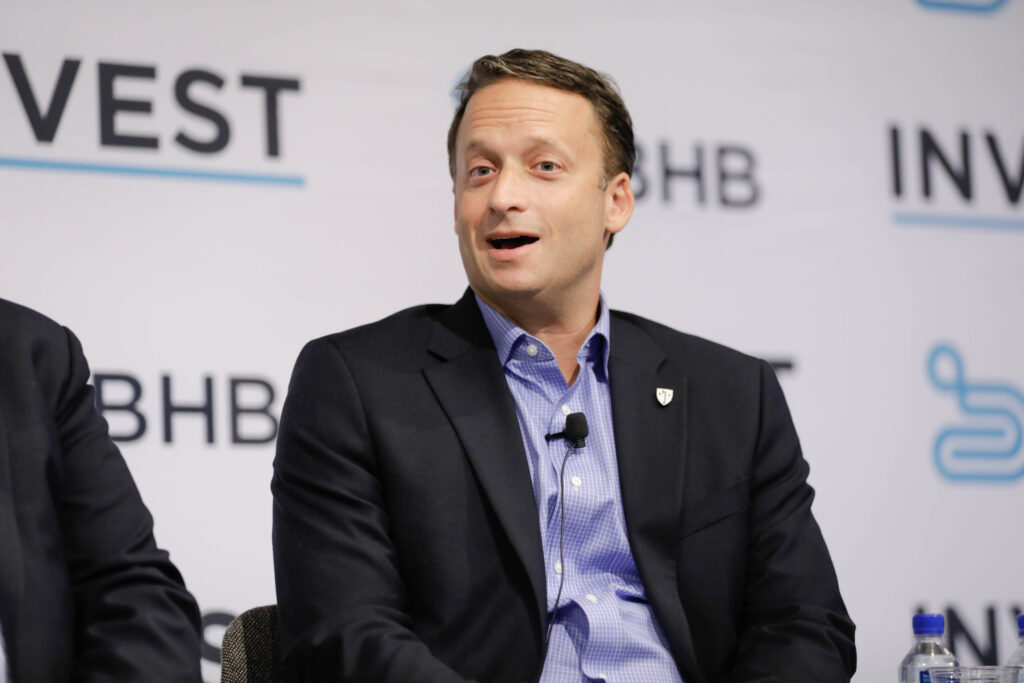As the Federal Reserve continues to raise interest rates, many behavioral health stakeholders are tightening their belt on merger and acquisition deals. But for providers with cash, it could be a prime time to strike.
“What we’re seeing when we are out talking about acquisitions is that people are dropping out quicker and they don’t want to pay up as much,” David White, CEO of BayMark Health Services, said during a panel at Behavioral Health Business’ INVEST. “We’re sitting there with some dry powder, and we can wait it out. That’s been really helpful from an acquisition perspective; we’re able to acquire now and we’re seeing some folks who were acquisitive, who aren’t now.”
BayMark Health Services is a behavioral health provider focused on treating substance use disorder and has more than 400 treatment facilities in 37 states.
But White isn’t the only behavioral CEO bullish on M&A in 2023. Mindpath CEO Christopher Brengard echoed those sentiments and is looking to go full steam ahead on acquisitions.
Mindpath Health is an outpatient behavioral health provider with 650 mental health clinicians and more than 100 locations. Mindpath was acquired by Community Psychiatry in 2021. It has since made a number of acquisitions including virtual mental health provider Acacia Counseling and Wellness and Psychiatric Centers at San Diego.
Refresh CEO Steve Gold has a similar outlook.
“M&A is still a large part of what we do at Refresh,” Gold said. “We’re still interested in partnering with great clinicians, psychiatrists, practice owners, who want to take their practice to the next level.”
Refresh Health has more than 300 outpatient locations in 37 states. Its services include treatment for SUD, mental health conditions, eating disorders, couples therapy, psychiatry and more. It was acquired by UnitedHealth Group’s (NYSE: UNH) health services division Optum in March for an undisclosed sum.

Although behavioral health M&A is trending down year-over-year, there is still a healthy deal flow in the sector. In 2021’s banner year there were 158 behavioral health deals, in the first half of 2022 there were 70 deals, according to Mertz Taggart.
The bear market forecast could mean less competition for the established behavioral health players. Inversely, market headwinds could be particularly difficult for providers that have gotten in over their heads.
“I think that there’s some people getting a little out over their skis a bit trying to grow too quickly and really don’t understand the challenges in productivity, utilization, and dealing with the insurance companies,” Brengard said. “This is a great industry, and I think if you’re just patient, I think all of it is very workable.”
Operators with M&A experience under their belt are now fine tuning exactly what they are looking for from potential acquisition targets. BayMark is focusing more on strategic rather than opportunistic transactions, White said. The organization is aiming to leverage acquisitions to integrate services within a market — for instance, medication assisted treatment, residential inventory and detox.
“That becomes a real cost-effective way of delivering care,” he said.
Many behavioral health providers are looking to grow through a combination of acquisitions and de novos.
“We remain bullish, the pipeline is full, we’re being extremely selective,” Brengard said. “We focus on very specific markets that fit our needs, and then we open density in the markets that we’re in. And then we complement that with a pretty robust organic growth.”

Opportunity for digital adoption and acquisitions as valuations plunge
While geographical growth is a key element to many deals, others are looking to the virtual space for the future. Digital behavioral health as a sector raised more than $5.5 billion in 2021.
Many of those companies are beginning to look for exit strategies as funding is starting to pull back.
More traditional players are beginning to integrate virtual more deeply into their services.
“We bought a tech enabled company called Kaden Health,” White said. “Our goal is to have about 30% virtual, where people can get virtual treatment in …a rural area [or] they can come in to meet with our psychiatrists or mid levels or staff if they need that. I think that’s important for behavioral health.”
But the digital mental health space is still in its infancy and taking bets on this space is high risk.
There will be winners and losers among VC- and PE-backed companies, Gold said. Funding has fueled a lot of advertising, recruiting and overpaying in particular fields.
“I think that’s coming down because there isn’t an unlimited amount of capital,” he said.
Legislative uncertainty in the virtual mental health space could also impact the consolidation efforts in the future.
“We’re starting to see some people have made some stumbles, people who have gone into a state and maybe have a total virtual presence and then the state says you have to see someone once a year,” White said.

Going deep on clinical due diligence
The due diligence process is one of the most important elements to a successful deal, according to Gold.
“Whatever clinical practice you’re acquiring, make sure to diligence the heck out of it,” Gold said. “Make sure that the clinician is actually an expert in the field of whatever it is, don’t just buy the group because it has 100 clinicians.”
The ability to track and prove measurable outcomes, which has been notoriously lacking in behavioral health, is also key to scaling a business.
“We literally close on 5% of the deals that we do a lot of work on,” Brengard said. “It really comes down most of the time to clinical leadership and clinical outcomes, whether or not we agree with clinical programs or not whether or not we believe that they fit into our spectrum of services, whether it’s somebody that we want to be partners with.”
Companies featured in this article:
BayMark Health Services, Mindpath Health, Refresh Mental Health



